MOVIE REVIEW – Guy Ritchie presents his most outstanding creation in years with The Covenant, a film that draws from real stories, examining the complexity of human relationships, promises, and their fulfillment, often within a life-or-death context. The director steps away from the light-hearted tone of his previous works to tell a serious, well-thought-out story, in which loyalty, personal responsibility, and courage play central roles. This film not only reflects its era but digs deeper, uncovering personal dilemmas and conflicts within the global political situation.
In recent years, Guy Ritchie and his filmmaking team have been maneuvering between light-hearted, funny productions, and significant masculine narratives. After the 2019 crime comedy, The Gentleman, came the serious “Heat”-inspired “Wrath of Man”, followed by the globetrotting spy film, “Operation Fortune: Ruse de Guerre”. Ritchie now returns to a more serious tone and presents a film that is based on the harsh political events of the real world – The Covenant, his best film in years.
Obligation and Loyalty
The film is not based on a specific real story but takes inspiration from the heartbreaking real stories of Afghan interpreters who collaborated with the United States military for over two decades. They were promised visas, but after the U.S. withdrawal from Afghanistan in 2021, they were left alone in a hostile environment. Ritchie, Ivan Atkinson, and Marn Davies, the screenwriters, have created a narrative about the American military that fits into Ritchie’s unique artistic vision, about human covenants and the sacred obligation of the parties involved in the covenant. Ritchie puts particular emphasis on text-based information dissemination, sprinkling numerous locations, names, and military jargon throughout the film. At the end of the film, however, a definition emerges that illuminates the film’s title and underlines the central theme of the film: the word “covenant” as a pledge, an obligation.
The Two Faces of Promise
On one side, we find Sgt. John Kinley (Jake Gyllenhaal), a solid, arrogant weapons and explosives expert who leads a tightly knit team strengthened by dangers throughout life. On the other side, we find John’s new interpreter, Ahmed (Dar Salim), a mysterious, reticent man with an excellent understanding of people and situations, possibly due to his dubious past. He takes his role as “interpreter” seriously – not just translating language but identifying non-verbal cues, tone of voice, and facial expressions to reveal the truth.
The team stumbles upon a massive IED factory in an abandoned location and finds themselves under fire from the Taliban forces who arrive in unending waves, armed and driving Toyota trucks. An incredible survival story unfolds, centered around self-sacrifice and redemption, a drama of relationships and agreements forged in blood. When Ahmed and John are left alone in the wilderness, with John severely wounded and the Taliban on their trail, Ahmed takes on a tremendous risk and drags him back to base. This act of lifesaving, rooted in love, generosity, and self-sacrifice, gets John home and forces Ahmed, along with his wife and child, to flee from the Taliban because he killed their soldiers and collaborated with an American.
Individual Responsibility and Risk
John is plagued by guilt, haunted by the past, and frustrated by the bureaucracy that fails to deliver the promised visas. Therefore, he takes matters into his own hands and acts outside the system, at his own expense, knowing that he can only repay his debt with personal risk and potential sacrifices.
In The Covenant, Ritchie takes on a greater burden and it’s delightful to see him working with two truly excellent actors. Both characters often communicate without words, conveying unspoken thoughts with their eyes and body language. Both men face a lingering question – is Ahmed overly “wild”? Will John really stand by his interpreter? They have to prove themselves through their actions. Salim brings Ahmed’s caring character to life with a serious, soulful approach; Gyllenhaal employs his wildness and intense gaze in realizing John’s mission, using all possible means to sway the weight of the military machine in Ahmed’s favor.
Interplay Between Images and Sounds
Ritchie portrays the relationship between the two men with cinematic tools, a recurring motif where the camera lens brings them closer to each other as they watch each other. Christopher Benstead’s score maintains the push-pull rhythm throughout, where tribal drum beats are alternated with slow, melancholic string sounds. The camera views the landscape from high above, placing characters in space on aerial drone shots, or descending to ground level, capturing chaotic moments of hand-to-hand combat with handheld cameras. In a flashback scene, when John thinks about the dangers he faced while escaping from the mountains, the scene is lyrical and surreal, allowing us to enter his world of memories and understand what drives him on his dangerous mission.
Ritchie Takes the Topic Seriously This Time
At times, the acting, film techniques, and atmosphere can seem overly dramatic compared to the seriousness of the topic. This approach to such an openly political topic signals a new direction in Ritchie’s work, but when viewed in the context of his oeuvre, it’s not such a radical leap. It’s another story about an individual’s struggle, taking on the system with a criminal mentality to fulfill his obligation. Ritchie’s approach is to examine the problem on a micro-level, in human-to-human relationships, but looking at it on a macro level, it’s a distressing thought how many life-or-death agreements were left unfulfilled in Afghanistan.
-BadSector-
The Covenant
Direction - 8.5
Actors - 8.8
Story - 8.2
Visuals/Music/Sounds/Action - 8
Ambience - 7.8
8.3
EXCELLENT
The Covenant is an intense and captivating drama that presents a stark, grim reflection of reality to its audience. The film confronts us mercilessly with the cruelty of reality and the emotional crisis resulting from it, while skillfully mixing elements of classic action films and dramatic narratives."


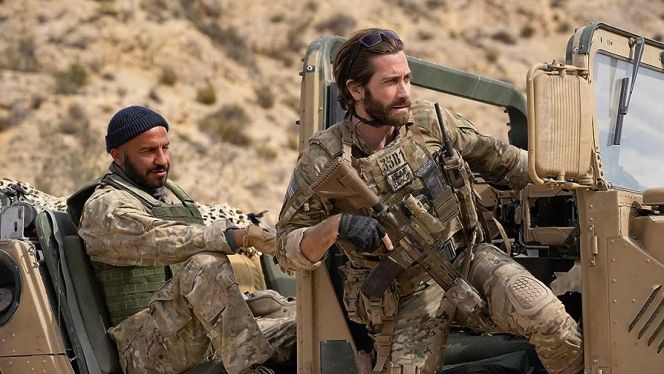
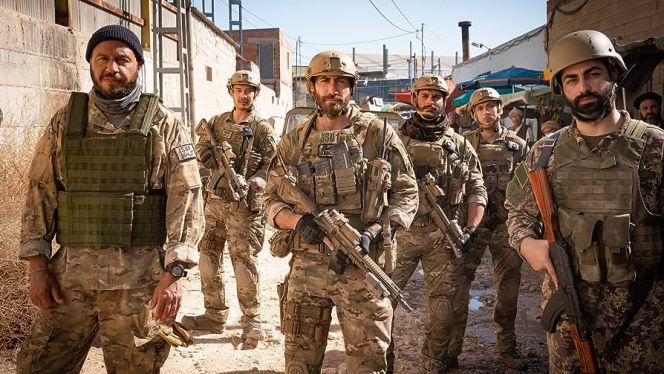
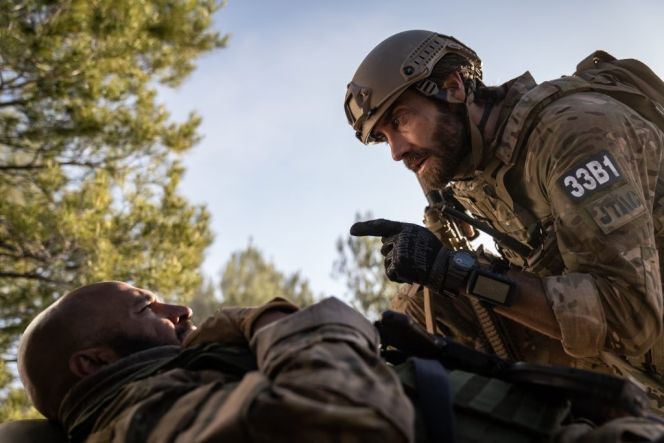
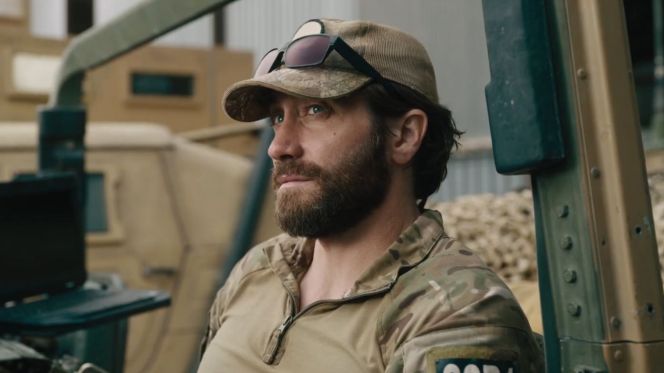











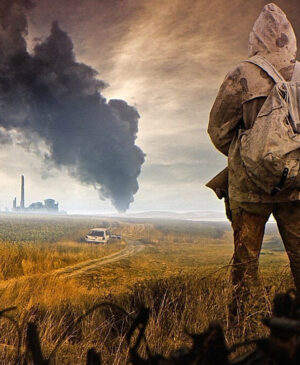


Leave a Reply